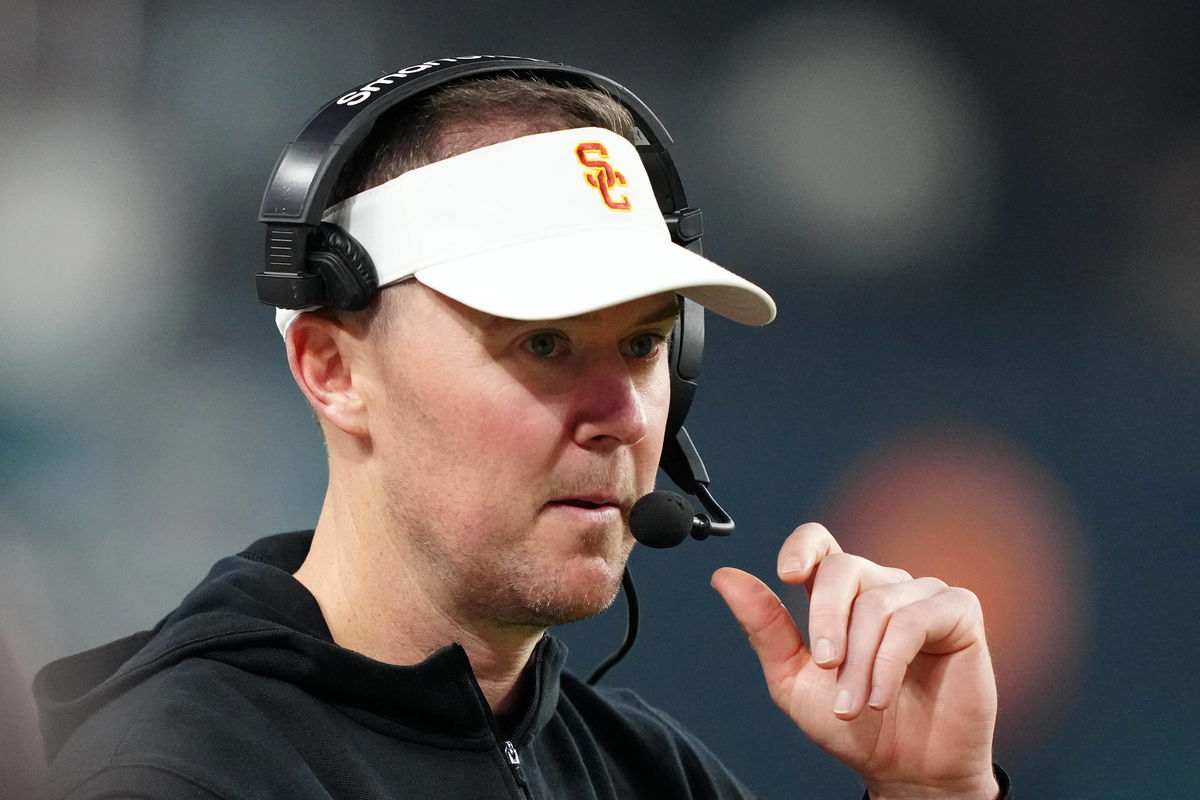
Imago
NCAA, College League, USA Football: Las Vegas Bowl-Texas A&M at Southern California Dec 27, 2024 Las Vegas, NV, USA Southern California Trojans head coach Lincoln Riley reacts against the Texas A&M Aggies in the second half at Allegiant Stadium. Las Vegas Allegiant Stadium NV USA, EDITORIAL USE ONLY PUBLICATIONxINxGERxSUIxAUTxONLY Copyright: xKirbyxLeex 20241227_szo_al2_0362

Imago
NCAA, College League, USA Football: Las Vegas Bowl-Texas A&M at Southern California Dec 27, 2024 Las Vegas, NV, USA Southern California Trojans head coach Lincoln Riley reacts against the Texas A&M Aggies in the second half at Allegiant Stadium. Las Vegas Allegiant Stadium NV USA, EDITORIAL USE ONLY PUBLICATIONxINxGERxSUIxAUTxONLY Copyright: xKirbyxLeex 20241227_szo_al2_0362
There’s something cinematic about watching a Lincoln Riley quarterback work. Whether it’s Baker Mayfield slicing defenses in 2017, Kyler Murray blitzing past defenders with video-game agility in 2018, or Caleb Williams painting sidelines with off-platform throws, Riley’s system is tailor-made for superstar quarterbacks. His resume is a trophy case, three Heismans, multiple No. 1 draft picks, and a track record that attracts elite high school talent like moths to a flame. And this has led him to command probably one of the coolest monikers in CFB. He has become the quarterback whisperer of college football.
Watch What’s Trending Now!
That pedigree has made USC one of the hottest destinations in the sport. When Riley left Oklahoma and brought Caleb Williams to Los Angeles, expectations skyrocketed. Fans saw a return to relevance, maybe even dominance. And for a while, it looked like it was all coming together. Williams won the Heisman. USC flirted with the College Football Playoff. But then came the tough losses. The shootouts they couldn’t control. The defensive collapses. And suddenly, whispers started creeping in from the outside—was something missing beneath the fireworks?
Riley’s track record is undeniable. In just a few years, he’s produced multiple Heisman Trophy winners and an impressive list of NFL QBs. Fans expect flashy passing numbers and weekly highlights. But somewhere between the RPOs and the highlight reels, is USC losing the blueprint for consistently beating elite college teams?
ADVERTISEMENT
That’s where CBS’s Gary Danielson stepped in, during his chat with Ryan Abraham on InsideTroy, and challenged the QB-first narrative. He talked about the games USC should’ve won in 2024 but didn’t. “Um, yeah, I mean there were a couple games that… they should have won that they didn’t,” he said. But what do you think could be the reason behind those losses? This is the point where USC’s quirk is slowing and hindering their progress. You know that saying that goes like, “To a man with a hammer, every problem looks like a nail.” It’s some version of that going on at USC.
Danielson didn’t exactly name names, but he did circle around a familiar theme, and that was Lincoln Riley’s trademark quarterback-centric offense. “There comes a time in the game, he explained, “that you have to have your football team depend on someone other than the quarterback having to win the game.” That’s not exactly a shot, but it’s also not subtle.
Danielson went on to say, “You have to be able to play big, tough football. So, like, you know, not all 12 games, all 70 plays in the game, it’s up to the quarterback to read the RPO and throw the perfect pass and make the right decision.” Then came the knockout punch. “Once in a while,” he added, “you have to just turn around, hand the ball off, and control the football game.” Danielson emphasized that unless USC starts leaning into that tougher, more balanced identity, they’ll struggle to keep up with “the Ohio States, Penn States, Michigan week in and week out.” And for good measure, he dropped the NFL comparison: “It’s just like NFL football. You have to be able to be balanced on your offense.”
ADVERTISEMENT
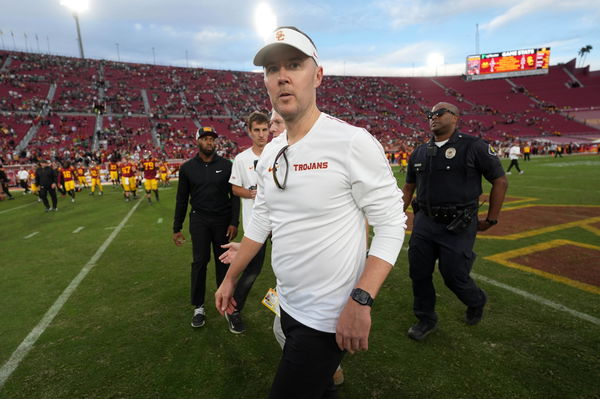
Imago
NCAA, College League, USA Football: Notre Dame at Southern California Nov 30, 2024 Los Angeles, California, USA Southern California Trojans head coach Lincoln Riley leaves the field after the game against the Notre Dame Fighting Irish at United Airlines Field at Los Angeles Memorial Coliseum. Los Angeles United Airlines Field at Los Angeles Memorial Coliseum California USA, EDITORIAL USE ONLY PUBLICATIONxINxGERxSUIxAUTxONLY Copyright: xKirbyxLeex 20241130_tbs_al2_082
These words cut right to the heart of the issue—in Danielson’s view, Riley’s QB-centric system may be handicapping USC when it comes to playing consistently physical, balanced football against top-tier opponents. What Danielson is hinting at is: in elite-level college football, games often aren’t won by quarterback heroics alone. Michigan, Ohio State, Georgia—they win trenches. They drain clocks. They run physical football that makes you grind. And until USC rediscovers that side of the game, it might struggle to break through. Danielson’s point is that a one-dimensional offense essentially hands a blueprint to opposing defenses: pressure your QB, collapse your line, watch the game slip away.
ADVERTISEMENT
Top Stories
Patrick Mahomes’ Dad Faces 10-Year Prison Sentence After Chiefs QB’s Father Reportedly Violated Probation Terms
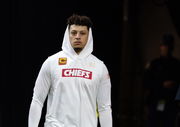
Prayers Pour In From Jordan Love & Co. as Cowboys Star Mourns Tragic Personal Loss
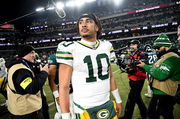
Justin Jefferson Makes Final Decision on Joining Buffalo Bills After Further Damaging J.J. McCarthy Relationship
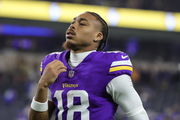
Matthew Stafford Makes Final Decision on Retirement After Narrowly Beating Drake Maye For NFL MVP
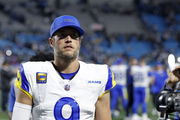
Multiple PGA Tour Pros Stopped from Playing as WM Phoenix Open Round Is Canceled Over Recurring Problem

PGA Tour Split Into Two as Scottie Scheffler Confirms Stance on Patrick Reed’s Return
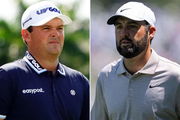
Riley’s ability to elevate quarterbacks is clear; Mayfield won the 2017 Heisman, Murray earned it in 2018, Williams in 2022, and Hurts nearly took it in 2019. Nearly every Riley QB ends up in the NFL. But Danielson argues that maybe Riley’s brilliance with quarterbacks is seeping past its usefulness. But in big college football, you also need game-changers in your ground game, clock control, situational defense, and occasionally, a power run call to seal a win.
Jayden Maiava steps into the spotlight under Lincoln Riley’s quarterback legacy
Jayden Maiava isn’t walking into 2025 with a job he lucked into; he earned it. After stepping up late last season, posting a 3-1 record including a win over archrival UCLA and a bowl victory against Texas A&M, Maiava has locked down the USC starting quarterback role. And this isn’t just about stats, though his 1,201 yards and 11 touchdowns are solid enough. What stands out is how he carries the offense, especially under the microscope of Lincoln Riley’s system. “Jayden has been doing a tremendous job,” wideout Makai Lemon said during Big Ten Media Days. “Working on extra things… paying really attention to detail… being a leader on our team.” It’s that polish, that attention to the craft, that now has him sitting atop the depth chart at a school where the QB standard isn’t just high—it’s Heisman-worthy.
ADVERTISEMENT
And it’s no accident that he’s progressing this quickly. Lincoln Riley has a way of unlocking a quarterback’s full potential. That same quarterback whisperer touch is now being seen with Maiava. The synergy between Maiava’s dual-threat ability and Riley’s aggressive, explosive offense creates a dangerous formula. “Explosive plays, that’s what we want,” Lemon added. “Not just ten yards for a first down, we want touchdowns, we want the big play.” That word—explosive—keeps coming up. It’s no coincidence. Riley’s system thrives on big moments, and Maiava is embracing that responsibility, evolving beyond just a game manager into a leader capable of driving a championship-level offense. But Riley has to beware of what Danielson said; the more the team leans on the QB, the riskier the results will be. It’s akin to putting all your eggs in one basket.
But for now, the chemistry inside the USC offense feels contagious. Lemon described a culture of mutual accountability that’s fueling the next level. “We push each other each day in practice… he gets a rep and I’m like, you can do better than that, and even then, he’s telling me, you can do better than that.” For Riley, who’s built his reputation on turning potential into production, Maiava might just be the next great success story. The foundation’s in place. Now it’s about whether Maiava can follow that same arc from underdog starter to Lincoln Riley’s next headline-making QB.
ADVERTISEMENT
ADVERTISEMENT
ADVERTISEMENT
ADVERTISEMENT
.png)
.png)
.png)



